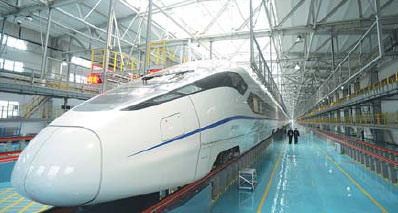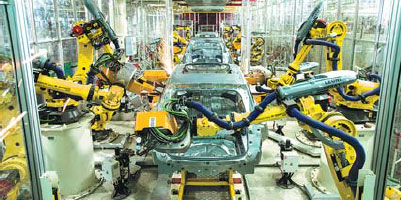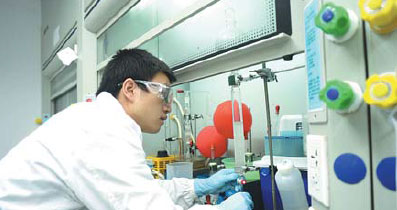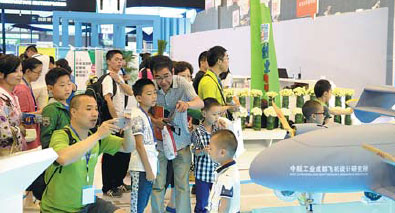Province becomes portal to the West for tech producers
Wherever you go nowadays, the phrase "made in China" is almost inevitable. You will find it marked on a plastic Eiffel Tower key ring, under your favorite coffee mug, basically every single clothing item in Forever 21, and on the back of your iPhone case.
Many may equate these three words with inexpensive, low quality and little technological content, but while such items as mentioned above are the stereotype of goods produced in China, that is not all the country makes.
Chengdu is one of the homes for the new wave of manufacturing in China.
Located in the high-tech zone in the west of Chengdu, a mega-sized industrial complex of 410,000 square meters, equivalent to 57 football pitches, is emerging. But the 46.5 billion yuan ($6.9 billion) monstrous building of BOE Technology Group is not just another massive processing factory, it is a leading innovation base for photoelectric sensors technology.
"This is the biggest investment BOE ever made, and it will be our sixth active matrix organic light-emitting diode (AM-OLED) production line, the products will be largely applied to high-end mobile devices and wearable display systems," according to a spokesman of BOE.
"It uses some of the most advanced technology in the world, and it will make Chengdu a prominent base for the photoelectric sensors industry."
BOE is not the only one investing heavily in Chengdu. The international automation and digitalization giant Siemens has invested a further 1 billion yuan ($149.72 million) in the only Industry 4.0 digital factory outside its headquarters Germany.
The German intelligent manufacturing strategy of Industry 4.0 is the example for the industrial upgrading taking place in Sichuan province, and the new plant has already attracted more than 15,000 entrepreneurs and scholars to visit.
Wang Haibin, the deputy CEO of Siemens China, pointed out that the Siemens Industry 4.0 has achieved full digitalization and transparency from the management, research and development, production and distribution.
"The human resources, the market capacity, the entire environment for foreign capital and the administration style of the government have made Chengdu the ideal location for Siemens," said Wang.
In April, Siemens China signed an agreement with Sichuan Institute of Industrial Technology to build an innovation and application center for the intelligent manufacturing of equipment.
Apart from such big investors, Chengdu has also become home for high-tech startups.
A Chengdu-based high-tech startup has built a robot that is believed to be smart enough to pass the notoriously difficult Chinese college entrance test.
"It will do the test along with the students next year," said Lin hui, the founder of the company.
|
A railway train sits in Chengdu, where the city launched the Chengdu Europe Plus strategy in 2015 to boost its connection to Europe. |
|
A production line of Shenlong Auto based in Chengdu. From January to August this year, the total production of cars in Chengdu hit 650,000, and the fi gure for this year is expected to reach 1.1 million. |
|
A staff member of a local high-tech fi rm at his workshop. Chengdu has taken the lead in China in off ering subsidies to startups. |
|
Local teenagers attend an aerospace exhibition. The Sichuan and Chengdu governments inked 27 projects with leading aviation companies in China,involving an investment of 58 billion yuan, this month. |
(China Daily 09/28/2016 page28)


















